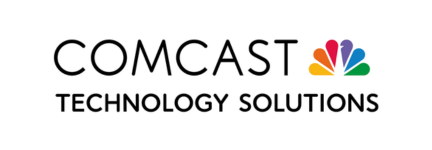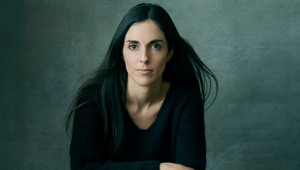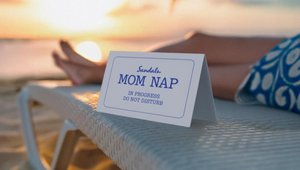
Production Line: Why Ashley Geisheker’s Pencil Are Never Down

Ashley Geisheker was recently elevated to head of production at Leo Burnett Chicago. In this role, Ashley leads all aspects of the creative agency’s production capabilities, with a focus on growing a pipeline of multi-faceted makers and pushing the boundaries outside of traditional creative production; underscoring Leo Burnett’s reputation of delivering world-class creative solutions that help business, by helping people.
Ashley joined Leo Burnett in 2018 as an executive producer after serving in executive and senior producer roles at various agencies. With nearly 20 years of experience in leading cross-functional teams and creating award-winning campaigns, she has been an influential creative partner behind various world-class productions for globally renowned brands including Samsung, Coors Brewing Company, Beam Suntory, Google and many more. Her clients and work have been awarded some of the industry’s top honours including Cannes Lions, LIA, FWA, The One Show and the Effies.
In 2021, Ashley led the production for the viral campaign, The Lost Class for non-profit gun control organisation Change the Ref.
We caught up with Ashley to find out more about her approach to the production process.
LBB> What lasting impact has the experience of the pandemic had on how you and your agency think about and approach production?
Ashley> The pandemic reinforced our production ingenuity and ability to create work no matter the circumstances. Despite everything, I am proud of how our teams have gotten the work done, while also looking ahead to fresh challenges production can overcome.
LBB> A good producer should be able to produce for any medium, from film to events to digital. Do you agree or disagree with this statement? Why/why not?
Ashley> Crafting an idea should generally be format agnostic: the foundation of a great producer is the same. Creativity and curiosity are inherent qualities of a producer. Being able to adapt and keep the vision of the story alive regardless of where it’s being featured is how producers approach everything.
And while there is a fluidity for most projects, there is of course an added benefit to leaning into individual expertise for creative ideas under specific circumstances.
LBB> And leading on from that, when it comes to building up your team at the agency, what’s your view on the balance of specialists vs generalists?
Ashley> Creativity is the most important. From there, the mix of client needs and range of desired outputs really determines the perfect mix. We have a healthy balance that prioritises individual growth in the production department along with delivering exceptional work.
LBB> What’s your own pathway to production? When you started out, what sort of work were you producing and what lessons have stayed with you in that time?
Ashley> I found my way into production by way of portfolio school and my first job as a junior account executive. I was lucky enough to experience working at an agency while fostering my creative ambitions. The result was a perfectly blended skill set that was well suited for production.
LBB> If you compare your role to the role of the heads of TV/heads of production when you first joined the industry, what do you think are the most striking or interesting changes (and what surprising things have stayed the same?)
Ashley> Every role has evolved since I first joined the industry, including the head of production position. We’ve grown a lot as an industry: we’ve pushed towards a more inclusive mindset, become nimbler in our thinking and done away with some bad habits. There are fundamentals that have remained relatively the same – that is, to foster creativity, encourage talent and find ways to make the impossible possible.
LBB> When working with a new partner or collaborator, how do you go about establishing trust?
Ashley> I prioritise honesty in conversations. Early in the process, I like everyone to align on the common goal the creative needs to achieve. If we’re all on the same page, we’re able to navigate trials and tribulations and shape the creative together.
LBB> How important is it to you that there is diversity across all partners on a production? Do you have any measures to promote diversity when it comes to production?
Ashley> Having diversity across all creators in the process is vitally important - to not strive to include unrepresented talent in every aspect of production is a failure, in my opinion. Leo Burnett is a partner of Free the Work, with the commitment to include at least one underrepresented creator in triple bid production scenarios.
LBB> When it comes to educating producers how does your agency like to approach this? (I know we’re always hearing about how much easier it is to educate or train oneself on tech etc, but what areas do you think producers can benefit from more directed or structured training?)
Ashley> Production is a very ‘hands-on’ learning process. Some of what we missed during the fully remote work life were the organic conversations younger producers overhear, or witnessing a seasoned executive producer manage a set. A quick conversation with another producer with whom you can bounce off your methodology is always helpful, as everyone approaches things with their own spin. You never know what tip, trick or nugget of information you’ll uncover even casually.
LBB> Should production have a seat in the c-suite - and why?
Ashley> Absolutely. Production is an investment. Having a production lead with a point of view on how to get things done, who can offer a way of thinking that hadn’t been previously considered, is good business.
Producers witness the creative coming to life and that is an invaluable perspective to consider at the c-level. When production is at the table with all other discipline leads, work gets stronger and smarter.
LBB> To what extent is production strategic - traditionally it’s the part that comes at the ‘end’ of the agency process, but it seems in many cases production is a valuable voice to have right up top - what are your thoughts/experiences of this?
Ashley> Production is inherently strategic. We map out our battle plan with just enough flexibility to blow things up as needed. Production should work in parallel with creative and strategy. Without having a clear and collective vision from the start and understanding the foundation of an idea, we wouldn’t be able to pull off great work.
LBB> What’s the most exciting thing about working in production right now?
Ashley> The barriers to great work have diminished. Anything can be an ad.
LBB> And what advice would you give to an aspiring agency producer?
Ashley> Never stop learning. Pencils are never down in production.















